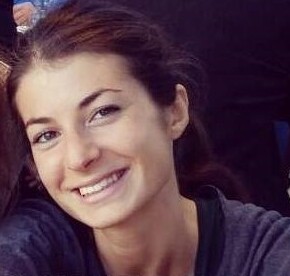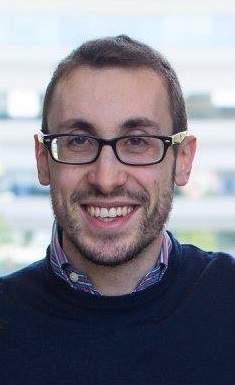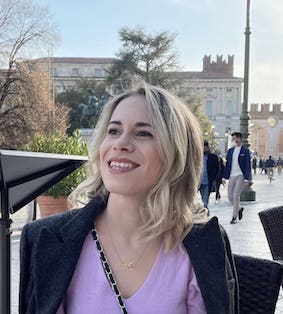Training and Research
PhD Programme Courses/classes - 2020/2021
Academic Presentation Skills (advanced)
Credits: 2
Language: Italian
Teacher: Silvia Cavalieri
Academic Writing (advanced)
Credits: 2
Language: Italian
Teacher: Silvia Cavalieri
Academic writing in latex and academic presentation
Credits: 2,5
Language: Italian
Advanced English for Academic Skills
Credits: 2,5
Language: Italian
Teacher: Sharon Hartle
Agenda dell’organizzazione delle nazioni unite 2030 sullo sviluppo sostenibile, ricerca e diritto antidiscriminatorio: strumenti ed esperienze nelle università
Credits: 1
Language: Italian
Grammatiche artificiali e apprendimento implicito
Credits: 1
Language: Italian
Teacher: Denis Delfitto
Artificial Grammar Learning 2
Credits: 0,5
Language: Italian
Teacher: Chiara Melloni
Artificial intelligence, cybersecurity e diritto
Credits: 1
Language: Italian
Collecting Linguistic data
Credits: 0,5
Language: Italian
Teacher: Valeria Franceschi
Collecting linguistic data, Part 1.2
Credits: 0,5
Language: Italian
Teacher: Silvia Cavalieri
Collecting linguistic data, Part 2.1
Credits: 0,5
Language: Italian
Teacher: Maria Francesca Bonadonna
Raccolta dati linguistici
Credits: 0,5
Language: Italian
Teacher: Silvia Domenica Zollo
Comparative Syntax 1
Credits: 1
Language: Italian
Teacher: Alessandra Tomaselli
Comparative Syntax 2
Credits: 1
Language: Italian
Teacher: Andrea Padovan
Comunicare la scienza: il ruolo dei ricercatori e il rapporto tra esperti, cittadini e istituzioni
Credits: 0,5
Language: Italian
Connessioni con altre sfere del sapere, come la filosofia o la storia dell'arte, e con altre forme di espressione artistica, come la musica e le arti figurative 1
Credits: 0,5
Language: Italian
Teacher: Isolde Schiffermuller
Connessioni con altre sfere del sapere, come la filosofia o la storia dell'arte, e con altre forme di espressione artistica, come la musica e le arti figurative 2
Credits: 0,5
Language: Italian
Teacher: Peter Erwin Kofler
Connessioni con altre sfere del sapere, come la filosofia o la storia dell'arte, e con altre forme di espressione artistica, come la musica e le arti figurative 3
Credits: 0,5
Language: Italian
Teacher: Gabriella Pelloni
Alfredo Caesella and the Russia/Soviet Musical Context (early 19th Century)
Credits: 0,5
Language: Italian
Teacher: Anna Giust
Contatti italo-slavi - Le letterature slave in Italia nel primo Novecento: il caso delle riviste fiumane
Credits: 0,5
Language: Italian
Teacher: Manuel Boschiero
Contatti italo-slavi tra fine Ottocento e primo Novecento: il ruolo delle riviste, i viaggi e gli scambi epistolari - La scoperta delle culture slave nelle riviste italiane del secondo '800
Credits: 0,5
Language: Italian
Teacher: Stefano Aloe
Corso di inglese B1/certificazione B1
Credits: 2,5
Language: Italian
Corso di inglese B2/certificazione B2
Credits: 2,5
Language: Italian
Corso di inglese C1/certificazione C1
Credits: 2,5
Language: Italian
Corso di lingua italiana per stranieri
Credits: 2,5
Language: Italian
Corso di programmazione con matlab
Credits: 2
Language: Italian
Medical statistics with R
Credits: 3
Language: Italian
Basic statistics course
Credits: 2,5
Language: Italian
Intermediate statistics course
Credits: 2,5
Language: Italian
(Meta-analysis using the statistical software Stata and R
Credits: 1,5
Language: Italian
Corso teorico-pratico di microscopia di base
Credits: 1
Language: Italian
On the notion of intertextuality and on literary intertextuality, with examples from English literature.
Credits: 0,5
Language: Italian
Teacher: Susanna Zinato
Dinamiche dell'intertestualità letteraria. Esemplificazioni dalla letteratura inglese e anglofona 2
Credits: 0,5
Language: Italian
Teacher: Annalisa Pes
Diritto d'autore e brevetti
Credits: 1
Language: Italian
Dissemination dei risultati della ricerca
Credits: 1
Language: Italian
English for academic presentations
Credits: 2,5
Language: Italian
English for academic writing
Credits: 2,5
Language: Italian
Gender issues in Shakespeare's female characters
Credits: 0,5
Language: Italian
Teacher: Sidia Fiorato
Fonetica
Credits: 1
Language: Italian
Teacher: Renzo Miotti
Shakespeare Source and Reception Studies and the Digital Turn.
Credits: 1
Language: Italian
Teacher: Silvia Bigliazzi
Phraseology and Lexicography 1
Credits: 0,5
Language: Italian
Teacher: Matteo De Beni
Fraseologia e lessicografia 2
Credits: 0,5
Language: Italian
Teacher: Elisa Sartor
Fraseologia e lessicografia/terminologia 2
Credits: 0,5
Language: Italian
Teacher: Paolo Frassi
Identities through English 1
Credits: 0,5
Language: Italian
Teacher: Roberta Facchinetti
Identities through English 2
Credits: 0,5
Language: Italian
Teacher: Sharon Hartle
Credits: 1
Language: Italian
Teacher: Maria Ivana Lorenzetti
Identities through English 4: Multimodality, identity, and affiliation
Credits: 0,5
Language: Italian
Teacher: Anna Zanfei
Intertextes - “Con voce altrui”: l’intertesto francese nell’opera di Primo Levi
Credits: 0,5
Language: Italian
Teacher: Rosanna Gorris
Intertextuality and description: around Salomé
Credits: 0,5
Language: Italian
Teacher: Laura Maria Colombo
Intertextes - Queneau and the influences of textuality
Credits: 0,5
Language: Italian
Teacher: Riccardo Benedettini
Introduzione al “public speaking”
Credits: 1
Language: Italian
Medieval literature between philology and DH
Credits: 0,5
Language: Italian
Teacher: Andrea Zinato
La mia archeologia e la mia politica culturale
Credits: 0,5
Language: Italian
Python programming language
Credits: 2,5
Language: Italian
Natural Language Processing (NLP) for analyzing written textual resources + Semantic Web and Linked Data technologies for the humanities
Credits: 2
Language: Italian
Teacher: Marco Rospocher
Presentation of Horizon Europe framework programme
Credits: 1
Language: English
Project writing for beginners
Credits: 1
Language: Italian
Seminario Consigliera di fiducia
Credits: 1
Language: Italian
Civilitas e taciturnitas
Credits: 0,5
Language: Italian
Teacher: Felice Gambin
Spin off e start-up innovative
Credits: 1
Language: Italian
Renaissance theatre and novel (theory, narratology, with examples in the Spanish novel and theatre)
Credits: 0,5
Language: Italian
Teacher: Anna Bognolo
L'Informatica Umanistica come ambito sceintifico: un'introduzione + Standard per la rappresentazione testuale nelle scienze umanistiche
Credits: 1,5
Language: Italian
Teacher: Anna Cappellotto
Translation 1
Credits: 1
Language: Italian
Teacher: Giovanni Luca Tallarico
Translation (2) Intralingual translation
Credits: 1
Language: Italian
Teacher: Barbara Bisetto
Protecting psychological well-being in the PhD program: development and enhancement of personal strategies and attitudes that predispose to professional satisfaction and ethical collaboration.
Credits: 1
Language: Italian
Working with textual files: encodings and regular expressions
Credits: 1
Language: Italian
Teacher: Marco Rospocher
Fonetica (2020/2021)
Teacher
Referent
Credits
1
Language
Italian
Class attendance
Free Choice
Location
VERONA
Learning outcomes
At the end of the seminar, PhD students will be able to:
- know the evolution of phonetic transcription systems;
- contrast different systems of phonetic notation;
- highlight potentialities and problematic aspects of each notation system;
- reflect on the displacement between phonetic notation systems and orthographic systems and, consequently, between phonic structures and orthography;
- become familiar with phonetic symbols as a tool to accurately describe the phonic structures of languages;
- reflect, through phonetic transcriptions, on the phonetic and phonological structures of languages;
- know the basic notions of general phonetics.
Program
The seminar intends to provide some fundamental notions on the principles of phonetic notation and on the tools (phonetic alphabets) that have been developed, throughout the history of linguistics, to visually represent, in the most rigorous way possible, the pronunciation of languages: from national ones , designed for specific geolinguistic realities, to the international one (IPA and extended versions). The seminar is structured in two parts: the first, diachronic, outlines the history of the notation systems; the second aims to illustrate the international phonetic alphabet (IPA) and provide some application examples, through the commentary on transcripts, also in a contrastive key, in order to highlight not only its potential but also its problematic aspects. Finally, by becoming familiar with phonetic symbols, doctoral students will acquire the basic notions of general phonetics (phonatory apparatus, mechanisms of sound production and classification of the same, based on articulatory parameters).
For detailed information please refer to:
https://moodle.univr.it/moodleext/course/view.php?id=191
PhD school courses/classes - 2020/2021
PhD School training offer to be defined
Faculty
 silvia.cavalieri@univr.it
silvia.cavalieri@univr.it

Degani Marta
 marta.degani@univr.it
marta.degani@univr.it
 +39 045802 8259
+39 045802 8259
Haugen Odd Einar
Kramer Martin
 0458028706
0458028706
 0458028706
0458028706
 dora.renna@univr.it
dora.renna@univr.it
 silvia.zollo@univr.it
silvia.zollo@univr.it
PhD students
 giorgia.andreolli@univr.it
giorgia.andreolli@univr.it
 beatrice.berselli@univr.it
beatrice.berselli@univr.it
 andrea.brugnoli_01@univr.it
andrea.brugnoli_01@univr.it
 arianna.compostella@univr.it
arianna.compostella@univr.it
 lucaelfo.jaccond@univr.it
lucaelfo.jaccond@univr.it
 gloria.mambelli@univr.it
gloria.mambelli@univr.it
 greta.viale@univr.it
greta.viale@univr.it
Loading...




